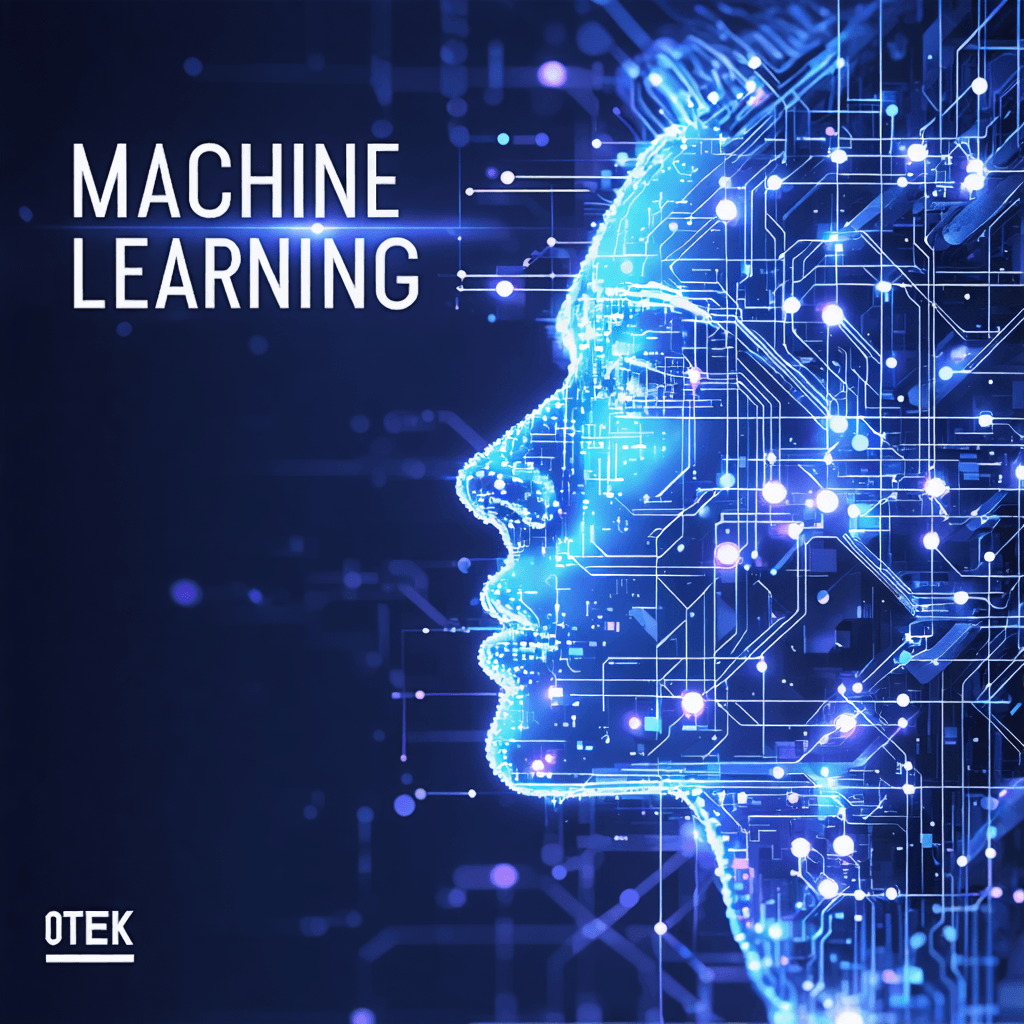Machine Learning Decoded: From Beginner Basics to Tech Paradigm Debates in 2025
In today's rapidly evolving tech landscape, machine learning (ML) has transcended its role as a buzzword to become an indispensable force reshaping industries across the globe. Let's dive deep into the current state of ML in 2025 and explore how this technology continues to revolutionize our world.
The Evolution of Machine Learning: 2025 Perspective
The machine learning landscape has undergone dramatic transformations since its inception. Today, we're witnessing the convergence of traditional ML approaches with cutting-edge quantum computing capabilities, creating unprecedented opportunities for innovation and advancement.
Current Trends Shaping the Field
1. Hybrid AI Systems
In 2025, the integration of neural networks with symbolic reasoning has emerged as a game-changing development. These hybrid systems combine the pattern recognition capabilities of deep learning with the logical reasoning of traditional AI, offering more robust and interpretable solutions.
2. Edge AI and Distributed Learning
The proliferation of IoT devices has catalyzed the growth of edge AI, where machine learning models operate directly on edge devices. This trend has significantly reduced latency and improved privacy concerns, making ML more accessible and efficient than ever before.
3. AutoML 2.0
The latest generation of AutoML tools has democratized machine learning, enabling non-experts to develop sophisticated models with minimal technical expertise. These platforms now incorporate advanced features like neural architecture search and automated feature engineering.
Getting Started with Machine Learning in 2025
Essential Prerequisites
- Strong foundation in mathematics (particularly statistics and linear algebra)
- Programming proficiency (Python remains the dominant language)
- Understanding of data structures and algorithms
- Familiarity with modern ML frameworks
Popular Learning Paths
The learning landscape has evolved to accommodate different skill levels and career objectives:
Foundation Track
- Basic statistics and probability
- Programming fundamentals
- Introduction to ML algorithms
- Data preprocessing and visualization
Advanced Track
- Deep learning architectures
- Natural Language Processing
- Computer Vision
- Reinforcement Learning
Specialized Tracks
- Quantum Machine Learning
- Edge AI Development
- MLOps and Production Deployment
Current Debates and Ethical Considerations
Transparency vs. Performance
The ongoing debate between model interpretability and performance continues to shape the development of new algorithms. While black-box models often achieve superior results, the demand for explainable AI has led to innovative approaches in making complex models more transparent.
Environmental Impact
The carbon footprint of training large ML models has become a critical concern. The industry has responded with more efficient training methods and environmentally conscious computing practices, including:
- Carbon-aware computing
- Green AI initiatives
- Energy-efficient model architectures
Bias and Fairness
As ML systems become more prevalent in decision-making processes, addressing algorithmic bias remains paramount. Recent developments include:
- Advanced fairness metrics
- Debiasing techniques
- Ethical AI frameworks
- Regulatory compliance tools
Practical Applications in 2025
Healthcare
Machine learning has revolutionized healthcare through:
- Precision medicine
- Disease prediction
- Drug discovery
- Medical imaging analysis
Climate Action
ML models are crucial in:
- Weather prediction
- Carbon emission optimization
- Renewable energy management
- Environmental protection
Financial Services
The finance sector leverages ML for:
- Fraud detection
- Risk assessment
- Algorithmic trading
- Personalized banking
Future Outlook
The machine learning field continues to evolve at an unprecedented pace. Key areas to watch include:
Quantum ML Applications
- Quantum-classical hybrid algorithms
- Quantum neural networks
- Quantum feature mapping
Sustainable AI
- Energy-efficient architectures
- Sustainable computing practices
- Green ML frameworks
Human-AI Collaboration
- Augmented intelligence
- Interactive learning systems
- Collaborative problem-solving
Best Practices for ML Implementation
Start with Clear Objectives
- Define specific business goals
- Identify success metrics
- Establish realistic timelines
Data Quality First
- Implement robust data collection
- Ensure proper preprocessing
- Maintain data governance
Iterative Development
- Begin with simple models
- Gradually increase complexity
- Continuously evaluate performance
Building a Career in Machine Learning
The field offers diverse career paths:
- ML Engineer
- Data Scientist
- AI Researcher
- MLOps Engineer
- AI Ethics Officer
Essential skills for 2025:
- Cloud computing expertise
- Version control and CI/CD
- Model deployment and monitoring
- Cross-functional collaboration
Conclusion
Machine learning continues to evolve and shape our future in unprecedented ways. As we navigate through 2025, the field presents both exciting opportunities and significant challenges. The key to success lies in maintaining a balance between innovation and responsibility, while staying committed to continuous learning and adaptation.
Ready to Start Your Machine Learning Journey?
Take the next step in your ML career with 01TEK's comprehensive learning programs. Our cutting-edge courses combine theoretical knowledge with hands-on practice, preparing you for the challenges of tomorrow's tech landscape.
Explore our Machine Learning courses and start your journey today →
Live in each season as it passes; breathe the air, drink the drink, taste the fruit, and resign yourself to the influences of each.
Henry David Thoreau



